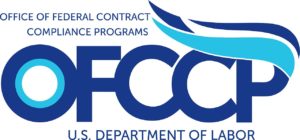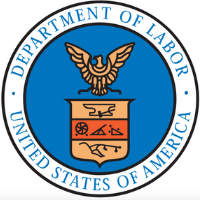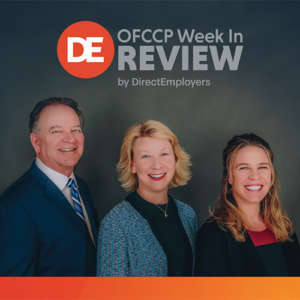Wednesday, February 13, 2019: OFCCP Published New Directive

What is VERP?
VERP is:
- a voluntary compliance program for covered federal Government contractors
- an alternative to OFCCP’s establishment‐based compliance evaluations designed to allow contractors to volunteer for audit if they have comprehensive, corporate‐wide inclusion and compliance programs
- a program that will recognize two tiers of contractors:
- The “top-tier” will showcase contractors with exceptional corporate‐wide diversity and inclusion programs.
- The “second-tier” will spotlight contractors who are compliant, yet looking for OFCCP individualized compliance assistance to become “top tier” contractors.
How will VERP work?
- Contractors would approach OFCCP and apply to be accepted into the “Voluntary Enterprise-wide Review Program.”
- As a condition of entry into the VERP, OFCCP would conduct Compliance Reviews of the contractor’s headquarters location as well as a sample or subset of establishments.
- The contractor would publish to OFCCP the “established criteria” the contractor has in place to demonstrate the Contractor’s “basic compliance” with OFCCP’s Rules.
- OFCCP would also expect the Contractor to provide it with “periodic reports and information” during the pendency of the VERP.
- OFCCP and the contractor would also negotiate how the contractor can show to OFCCP a “demonstrated commitment to and application of successful equal employment opportunity programs on a corporate‐wide basis.”
Why Participate?
OFCCP will remove approved contractors participating in the VERP from OFCCP’s compliance evaluation schedules for up to 5 years. “With every contractor accepted into the program, OFCCP will enter into an agreement that removes the contractor from OFCCP’s neutral scheduling process for the duration of the agreement (emphasis added), so long as the contractor abides by all terms of the agreement. The agreement will remain in effect for the duration of the contractor’s participation in the program. OFCCP would retain the right to conduct individual and/or third party complaint investigations of contractors participating in the VERP.”
- Approved top-tier contractors may remain in the program for five years and will be re‐evaluated to stay in the program at the five‐year mark.
- Approved second-tier contractors may remain in the program for three years and will receive individualized compliance assistance to become a top tier contractor.
Companies which apply but do not qualify for the program will return to the pool of contractors in the neutral selection process. OFCCP will not automatically place rejected companies on an audit scheduling list.
Wednesday, February 13, 2019: Fast Track Plan for Senate Considerations

If approved, these new fast track procedures would apply to key positions we are following, including:
- Wage-Hour Division Administrator: Cheryl Stanton
- Secretary of Labor, OSHA: Scott Mungo
- Commissioner of Bureau of Labor Statistics: William Beach
- Assistant Secretary of Labor: John P. Pallasch
- Assistant Secretary of Labor for Veterans’ Employment and Training: John Lowry III
Excluded from this Resolution are 13 Agencies, including the Equal Employment Opportunity Commission (“EEOC”) and the National Labor Relations Board (“NLRB”).
There are a total of 128, and changing daily, nominees currently awaiting Senate confirmation, according to the Partnership for Public Service. As we previously reported, President Trump’s nominations as to which the Senate had not voted before December 31, 2018, expired last year, leaving him to start the nomination process over again in 2019. As the process drags on, nominees continue to pull themselves from consideration, most recently Mark Pearce and Chai Feldblum, for positions with the NLRB and EEOC respectively.
Wednesday, February 13, 2019: ‘Ban the Box’ for Federal Contractors?
Many city and states have adopted regulations to ‘Ban the Box.’ This term refers to an international campaign by civil rights groups and advocates for ex-offenders, aimed at persuading employers to remove from their hiring applications the “checkbox” that asks if applicants have a criminal record. Ban the Box supporters hope to enable ex-offenders to display their qualifications in the hiring process before being asked about their criminal records.
Senator Cory Booker (D-NJ) introduced a Bill, “The Fair Chance Act” (S.387), that would, among other things, prohibit Federal agencies and Federal contractors from requesting that an applicant for employment disclose criminal history record information before the applicant has received a conditional offer. Representative Elijah E. Cummings (D-MD) introduced a similar Bill (H.R. 1076) on February 7, 2019.
Contractor Take-A-Ways:
- Determine if your current process includes questions about criminal convictions in the application process, before a conditional job offer.
- Review your city and state regulations for ban-the-box requirements.
- Should this bill pass, be prepared for regulations that will only allow questions about criminal convictions after presenting a conditional job offer.
Friday, February 15, 2019: Director Leen Leads by Example for Workplace Inclusion

Director Leen is leading by example at his own Agency. Check out the video he, along with the DOL’s Civil Rights Center, released for OFCCP staff. He not only expresses his commitment to workplace inclusivity at OFCCP, but he also promises training for staff on the interactive process surrounding reasonable accommodation requests.
Contractor Action Items:
- Do you have reasonable accommodation processes and policies? Are they documented?
- Are the appropriate personnel trained on the interactive process?
- Are you documenting reasonable accommodation requests and outcomes?
- Has your CEO/President endorsed the company efforts?
These are questions that you can expect OFCCP will ask. Currently, your reasonable accommodations policies are requested as item #20 of the Itemized Listing attached to OFCCP’s Supply and Service audit Scheduling Letter and also item #10 of OFCCP’s recently released Focused Review audit Scheduling Letter OFCCP intends to use later this year.
Need help?
Start with the Employer Assistance & Resource Network on Disability Inclusion (“EARN”) and the Job Accommodation Network (“JAN”) for a plethora of free resources and training to get started. DirectEmployers Members, jump into the DE Connect Community to tap into other partnerships and talk with fellow Members on best practices.
Regulation Reminders:
- 41 CFR 60-741.44(a) and §60-300.44(a) require that the equal employment opportunity policy statements of covered Government contractors “indicate the top United States executive’s (such as the Chief Executive Officer or the President of the United States Division of a foreign company) support for the contractor’s affirmative action program…”
- 41 CFR 60-741.21(a)(6) “Not making reasonable accommodation.(i) It is unlawful for the contractor to fail to make reasonable accommodation to the known physical or mental limitations of an otherwise qualified applicant or employee with a disability as defined in §§60-741.2(g)(1)(i) or (ii), unless such contractor can demonstrate that the accommodation would impose an undue hardship on the operation of its business.”
The development of reasonable accommodations procedures is not a regulatory requirement under OFCCP’s Rules. Instead, employers consider the development of such practices a “best practice.” However, given the frequent uncertainty in how to recognize, respond, and document accommodation requests, it is imperative to establish, document and train on policies and procedures for all employees on how to request an accommodation and how to manage the process.
Reminder: DOL Website Down

Most DOL websites and web systems will be affected and unavailable to the public until this time. The National Contact Center remains open 24 hours a day to contact Job Corps (1-800-733-5627), MSHA (1-800-746-1553), and OSHA (1-800-321-6742).

